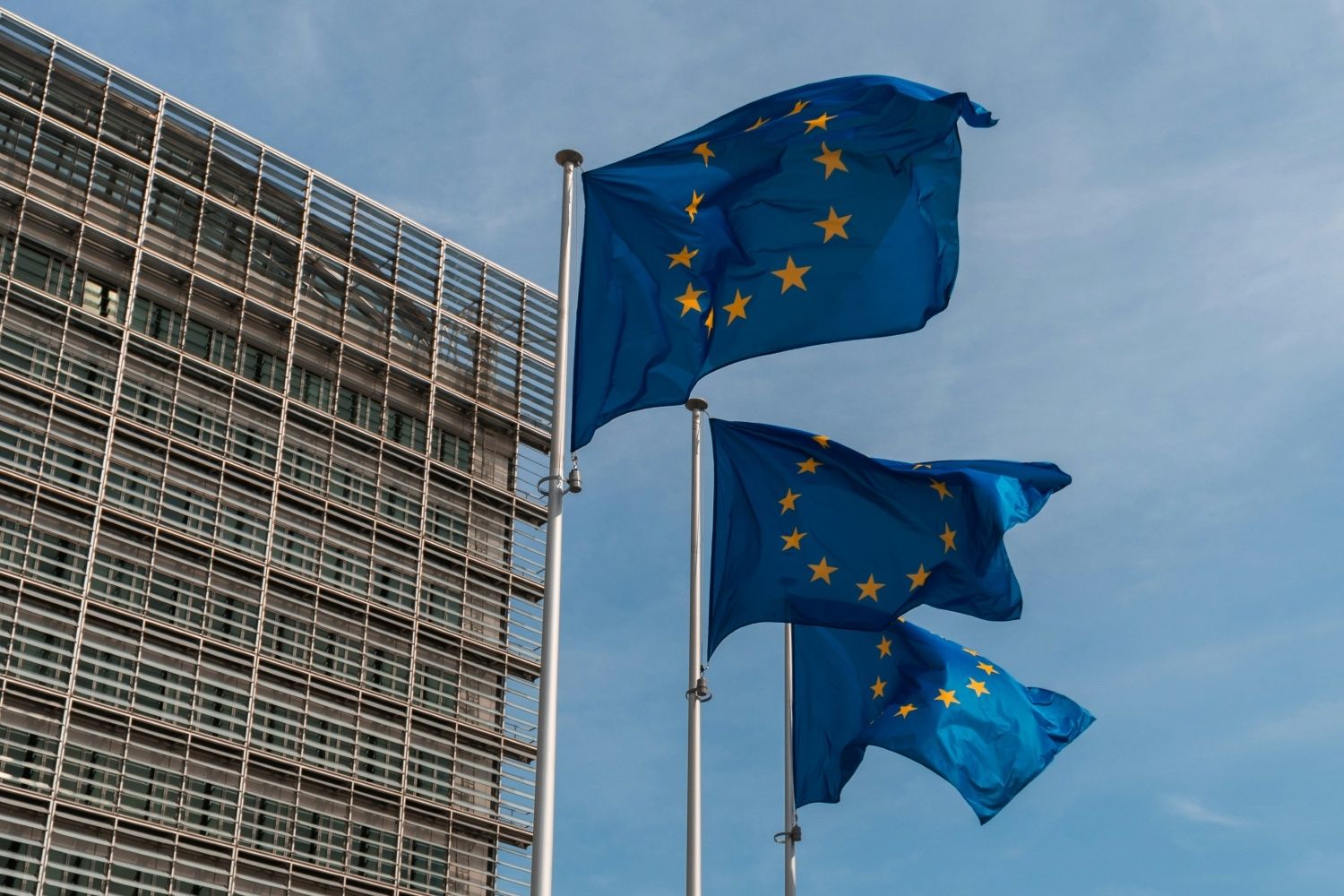|
|
"There is no stop the clock, there is no grace period, there is no pause."
— European Commission spokesperson Thomas Regnier on AI Act enforcement
|
|
Welcome to Snippets 👋 Here's what's been happening at the intersection of privacy, tech, and AI:
- Microsoft and OpenAI are joining forces to bring AI to classrooms
- The European Commission is holding fast on the EU AI Act enforcement timeline
- Healthline Media received a $1.55 million fine, the largest ever under CCPA
- And so much more!
|
|
|
|
|
Microsoft and OpenAI move to bring AI into the classroom
|
 |
|
izusek/Getty Images
|
Microsoft, OpenAI, and Anthropic are partnering with the American Federation of Teachers (AFT) to launch the National Academy for AI Instruction—a $23-million initiative to help educators ethically integrate AI into US classrooms.
|
- The academy plans to offer free workshops and online courses to about 400,000 AFT members over five years, providing continuing education credits.
- The initiative reflects both the growing adoption of AI in education and the challenges it poses—helping K-12 teachers integrate AI ethically while navigating concerns about student skill development and AI-assisted cheating.
- Critics have raised concerns about the move, citing commercial motives within big tech and the need for teacher input in AI policy decisions.
|
|
|
|
|
|
|
Report: 100% of organizations say consented data is essential for AI innovation 💡
|
|
Download this exclusive report to learn how consent and preference data go beyond compliance to power innovation, accelerate digital transformation, and unlock new revenue streams.
- 100% of executive respondents say consented data enhances their organization’s ability to launch new products and services.
- More than half of executives report being highly reliant on consented data for digital innovation initiatives like personalized marketing, product development, and AI.
- More than 70% of executives say they struggle to proliferate communication preferences across their organization’s entire data ecosystem.
These findings are based on an independent survey of 265 privacy, security, and marketing professionals conducted by UserEvidence and commissioned by Transcend.
|
|
|
|
|
|
|
|
European Commission upholds the AI Act enforcement timeline
|
 |
|
|
The European Commission (EC) confirmed there will be no pause or delays in the enforcement of the EU’s landmark AI Act, despite rumors to the contrary.
|
- At a July 4 press briefing, a month ahead of the deadline for general-purpose AI (GPAI) compliance, EC spokesperson Thomas Regnier ruled out delays or grace periods for enforcement.
- However, he noted the commission is considering postponing the implementation of the voluntary GPAI code until the end of 2025. That code has been the subject of intense debate, and the final version is expected to be published in August.
- The Commission is setting up an AI Act service desk to help with compliance, but businesses in both the EU and US continue to push for a delay—citing undue complexity and calling for a more business-friendly standard.
|
|
|
|
|
|
|
|
California sends clear warning with record Healthline fine
|
 |
| Adobe Stock |
In the largest California Consumer Privacy Act (CCPA) penalty to date, Healthline Media was fined $1.55 million for failing to honor consumer privacy rights and misusing health-related data.
|
- According to the complaint filed by California Attorney General (AG) Rob Bonta’s office, Healthline violated the CCPA by sharing sensitive health information with advertisers and allowing data tracking even after users opted out.
- The site shared sensitive information, such as article titles that could be used to infer medical conditions, and linked the data to a unique cookie, which enabled detailed profiling by third parties.
- The complaint also stated that Healthline used deceptive cookie banners and had inadequate or missing contracts with third-party ad vendors.
- Under the settlement, Healthline must stop sharing data about possible medical diagnoses, overhaul their consent mechanisms and contracts, and undergo annual audits.
|
|
|
|
|
|
|
|
- An imposter used AI to impersonate Secretary of State, Marco Rubio.
- Privacy is blockchain’s weakest link and biggest opportunity.
- Deepseek faces ban in Germany.
- Eliminating LLM hallucinations while protecting privacy.
- Minnesota’s Consumer Privacy Act is set to take effect.
|
|
|
|
|
|
Agentic AI poses significant privacy threat, says Signal’s Meredith Whittaker
|
 |
|
Photo by Julien De Rosa/AFP via Getty Images
|
Signal Foundation President Meredith Whittaker warns that agentic AI poses a major privacy risk because these systems are designed to interact with multiple layers of an app, which could allow them to access sensitive data across a user’s entire device.
|
- Agentic AI systems, which can act on users’ behalf to complete everyday tasks like making a dinner reservation, require deep access to calendars, web browsers, contact lists, and messaging apps like Signal.
- Whittaker argues this creates a dangerous overlap, essentially “breaking the blood-brain barrier between the operating system and the application layer.”
- In her July 8 speech at the AI for Good Summit in Geneva, she raised these concerns while advocating for developer-level opt-outs and open, verifiable AI design.
|
|
|
|
|
|
|
|
Congress faces renewed pressure over AI regulation after state ban fails
|
 |
|
Illustration: Allie Carl/Axios
|
The defeat of a Republican-backed proposal to block state-level AI regulation has intensified calls for federal AI legislation amid growing public and bipartisan support.
|
- The Senate removed a 10-year moratorium on state AI regulations from the budget bill, despite efforts by Senator Ted Cruz and other Republicans to keep it.
- The proposed ban would have tied federal grant eligibility to states avoiding AI regulation, sparking major backlash.
- Internal GOP divisions, including opposition from Trump allies like Steve Bannon, helped sink the moratorium.
- With over 20 states enacting AI laws and public concern growing, advocates warn that Congress must act soon to avoid a fragmented national approach.
|
|
|
|
|
|
|
Explore the bold new voices shaping the future of privacy 🎥
|
|
Transcend’s Next-Gen Voices spotlights emerging perspectives driving the future of trust, AI governance, and responsible data leadership—and the full episode is live! This chapter features:
- Shana Morgan, Global Head of AI / Privacy at L3Harris Technologies
- Jevan Hutson, Privacy & Security Associate at Davis Wright Tremaine LLP
- Melanie Selvadurai, Privacy Program Manager at TikTok
- Sonia S. Siddiqui, Privacy Consultant & Advisor (ex-Kohler, ex-Coinbase)
Find the full episode below ⬇️
|
|
|
|
|
|
|
|
|
Snippets is delivered to your inbox every Thursday morning by Transcend. We're the platform that helps companies put privacy on autopilot by making it easy to encode privacy across an entire tech stack. Learn more.
|
|
|
|
You received this email because you subscribed to Snippets. Did someone forward this email to you? Head over to Transcend to get your very own free subscription! Curated in San Francisco by Transcend.
|
|
|
|
|
|